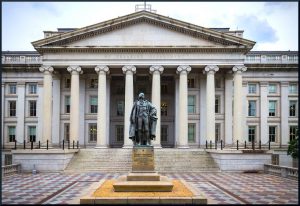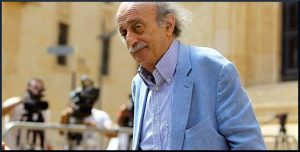by As’ad AbuKhalil, published on Consortium News, September 13, 2020
Lebanon moves from one catastrophe to another; as if the blast at Beirut airport last month wasn’t enough.
There was another fire there this week at Beirut port, an area that was subjected in August to government emergency laws. Those emergency laws put the Army command in charge of the port and its surrounding areas but there will be little accountability for the role of the Army commander who works closely with the U.S., and who has been receiving U.S. food aid to distribute to needy families.
The U.S. is, as is custom with loyalists in developing countries, keen on elevating the army commander to the status of a political boss to make him a president one day. Present-day President, Gen. Micehl `Awn was very close to the Americans in the 1980s (when `Awn was Army commander). But that was long before his alliance with Hizbullah in 2006.
The U.S. has a pattern in subjugating and dominating countries: first you bomb them, then you exhaust the population and starve it, and then you achieve total domination—or you think you can—because both Iraq and Afghanistan undermined the self-confidence of the U.S. war machine.
The U.S. government destroyed Iraq in the 1991 war, and then imposed cruel sanctions on it. (The present sanctions against Iran and Syria are even more cruel, and they—like all U.S. sanctions against enemies of Israel—cause the people to suffer, while U.S. propaganda claims that its sanctions only target rulers).
For much of the 1990s, the U.S. achieved what was hitherto unimaginable: a highly developed country was bombed and starved back into a pre-industrial age. Iraq was one of the most advanced countries of the Middle East, and its affluence allowed it to build a strong army which bothered Israel.
Israel and the U.S. have never allowed any Arab country—or Iran for that matter—to build a strong army. The U.S. and Israel fought against the armies of Nasser, the armies of the various Ba`th regimes, and the Iranian armed forces (not directly but by proxy when the U.S. supported Iraq in the Iran-Iraq war).
The U.S. has been using the same tired strategy against Lebanon: Washington didn’t create corruption and sectarianism, but it has sponsored and supported the bulk of the sectarian and corrupt ruling class in Lebanon. And when those corrupt politicians have faced public demands for prosecution, the U.S. has shielded them.
The Sanctions Game

The U.S. has been imposing various economic sanctions on Lebanon which—in the name of fighting Hizbullah terrorism—resulted in the collapse of two banks (one of which—the Jammal Bank—was the most popular among Lebanese Shi`ites in Lebanon and in the diaspora). The financial mismanagement of Lebanon, and the looting of the treasury and public assets, have been done largely at the hands of clients of the U.S. (by people like Rafiq Hariri, Sa`ad Hariri, Amin Gemayyel, Najib Miqati, Fu’ad Sanyurah, Marwan Hamadah, and Walid Jumblat among others).
The United States has not only sponsored, and worked very closely with, the Governor of the Central Bank, Riad Salameh, but it has vetoed his ouster.
Neither the U.S. government nor Western correspondents admit the obvious: among outside powers, the U.S. wields the most influence in Lebanon and has partial or full control of the Lebanese Army, Internal Security Forces, the financial sector, the intelligence branches, and the banking sector.
Salamah, the architect of the financial ponzi scheme of Lebanon, has become the object of popular rage, due to his role in the fall of the value of the Lebanese pound. Yet, no political party or government has been able to replace Salameh because they know that U.S. sanctions would follow if Salameh is out.
Jeffrey Feltman, the former U.S. assistant secretary of state and former U.S. ambassador to Lebanon, was very candid when he described the campaign against corruption in Lebanon as a “witch-hunt”, because he knows that the overwhelming majority of the corrupt members of the ruling class of Lebanon are puppets of the U.S. and Saudi Arabia.
The U.S. has been active in bringing down various economies of the world: from Venezuela to Iran. It will take years before we learn the full extent of the U.S. role in the financial collapse of Lebanon.
The Problem for Israel—and France
Lebanon poses a big concern for Israel: it is the only Arab country which houses a military force that humiliated Israel on the battlefield. For that, various sanctions against Hizbullah are announced periodically to remind the Lebanese that the U.S. would punish the whole population of Lebanon for the very presence of Hizbullah.
The U.S. and its Gulf allies have tried in successive elections since 2005 to bribe the population of Lebanon to exclude Hizbullah from political representation and yet Hizbullah keeps coming back. With its Shiite ally, Amal, it has over 95 percent support from the Lebanese Shiite community. The U.S. and the Saudis have tried very hard to find Shiite alternatives to Hizbullah, to no avail, (in the same way the U.S. and Israel tried to find Palestinian alternatives to the PLO).
“The U.S. has a pattern in subjugating and dominating countries: first you bomb them, then you exhaust the population and starve it, and then you achieve total domination—or you think you can…”
It was in this context of utter despair that France entered the scene in Lebanon. The French president flew to Beirut right after the port blast and summoned key Lebanese politicians (including the head of Hizbullah’s parliamentary bloc—with whom he held at least two meetings) and ordered them to form a government within a short time period and to adhere to an agenda of reform, which was largely set by the IMF.

France has always kept close relations with Lebanon because it regards itself as its guardian; France colonized Lebanon from 1920 until 1946, when it withdrew its occupation forces from the country. (The Lebanese struggle for independence was largely ceremonial because it was really the British who ended French rule over Lebanon).
There is such despair in Lebanon that some people who encountered Emmanuel Macron in his PR stop in the residential area near the port pleaded for him to return colonial rule to Lebanon. Advocates for Western colonialism have never disappeared from the Lebanese political scene. During French colonial rule, there were political parties which did not want colonialism to end. It is this political climate that France and the U.S. are exploiting to establish a foothold in Lebanon and to rid Lebanon of Hizbullah’s military force.
France Implementing US Plan
Naïve Lebanese (including Hizbullah itself) wrongly assume that the French initiative runs counter to U.S. interests. But the U.S. has admitted it is coordinating with Paris in Lebanon.
The basis for this misperception is that Macron—unlike U.S. officials—met with a Hizbullah representative, and he’s not made disarming Hizbullah an item on his agenda. But Macron made clear the matter of Hizbullah’s arms will be dealt with at a later stage.
So Macron is implementing a phased version of the U.S. plan with the consent of Washington, which has failed in all its previous attempts at excluding and boycotting Hizbullah. Hizbullah—despite U.S. threats and protestations—have been represented in all Lebanese cabinets since 2005.
Just days after Macron’s departure, Assistant Secretary of State for the Near East David Schenker arrived in Beirut and decided not to meet with Lebanese politicians. Instead he self-selected a group of Lebanese claiming that they represent the rebellious “civil society” (it turned out, one of them was a longtime Hariri admirer and a reporter for Hariri media).

While the U.S. is now posing as a supporter of Lebanese popular demands for an end to corruption, almost all of its closet allies are some of the most notoriously corrupt politicians in Lebanon. David Hale (State’s undersecretary for political affairs) railed against corruption in the morning during his last trip to Lebanon, and then had dinner with Walid Jumblat.
Similarly, in his very last visits, Schenker had dinner with Marwan Hamadi (a Jumblat protégé) and also dined at the house of Amin Gemayyel, the former president of Lebanon.
This week, the U.S. issued new sanctions against two former ministers of Lebanon: one is a protégé of Parliament Speaker (and Amal Movement leader) Nabih Berri, and the other is a protégé of Sulayman Franjiyyah (a Maronite politician who is aligned with Hizbullah.)
But the statement by the Treasury Department was rather confusing: the U.S. purposefully conflated accusations of corruption through alliance with Hizbullah, thereby implying that only those who are aligned with Hizbullah are corrupt while foes of Hizbullah (i.e., puppets of U.S. and Saudi Arabia) are not.
This is a hard sell: it is true that there are many corrupt individuals and politicians who are aligned with Hizbullah, but the camp of foes of Hizbullah has a preponderance of corrupt politicians. This latest sanctions’ announcement will allow those who are genuinely corrupt to hide behind the mantle of resistance to U.S. and Israeli pressures.
The U.S. wishes to continue its war on Hizbullah, but in new forms and means: in the guise of fighting corruption. For that to succeed, it has to convince the Lebanese people that Jumblat (who lives in two palaces in Lebanon, and owns a house in Paris and has skimmed millions from the Lebanese treasury over the years) is not corrupt while Hasan Nasrallah (who lives in hiding and has never had a weakness for luxury or wealth) is corrupt.
The U.S. won’t tire of trying to rid the Middle East of all enemies of Israel. For that, the U.S. may also want to rid the Middle East of the [entire] Arab population since it also harbors hostile feelings toward the occupation state.
As’ad AbuKhalil is a Lebanese-American professor of political science at California State University, Stanislaus. He is the author of the “Historical Dictionary of Lebanon” (1998), “Bin Laden, Islam and America’s New War on Terrorism (2002), and “The Battle for Saudi Arabia” (2004). He tweets as @asadabukhalil
